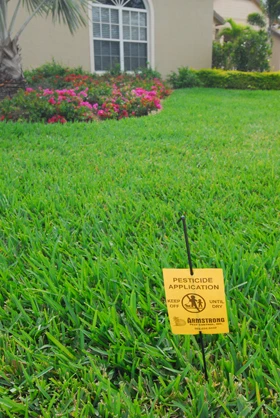
 Pesticide bans and well-organized activists might make it seem like the general population condemns the lawn care industry's use of products to treat turf. But research from Responsible Industry for a Sound Environment (RISE) has found that while the public may have concerns about pesticides, the vast majority see the benefits in their use.
Pesticide bans and well-organized activists might make it seem like the general population condemns the lawn care industry's use of products to treat turf. But research from Responsible Industry for a Sound Environment (RISE) has found that while the public may have concerns about pesticides, the vast majority see the benefits in their use.
And the job of the industry is to, with facts in hand, educate consumers and customers on those benefits.
"In today's communication landscape, all of you are experts," Becky Johnson of Fleishman-Hillard and RISE consultant told a group at the 2011 Lawn Care Summit. "You're not only experts to your customers with whom you interact with from a professional aspect, but you're also experts to your neighbors, the people you may serve on the PTA board with, general consumers that you come into contact with."
RISE took nearly three years to research – through phone surveys and focus groups – what consumers think of lawn care products like pesticides and fertilizers. The research culminated in Debug the Myths, a website and educational program that provides consumers with fact-based information about the industry and the products used.
Two of the main points uncovered during the research process were that people can be easily influenced on the topics of pesticides and fertilizers and that they had basic questions they wanted answered, Johnson says. Questions as simple as: What is a pesticide?
 Johnson provided the group tips on how to develop a message about lawn care products for consumers and legislators.
Johnson provided the group tips on how to develop a message about lawn care products for consumers and legislators.
Listen. Before an effective message can be delivered, listen to what the other person is saying. "Instead of assuming we knew what people thought, assuming we knew what their misconceptions were, we took the time to really listen to what they had to say," Johnson says. "Listen to their concerns, listen to their questions, and then create a response that aligns with those needs."
Don't be defensive. Even if there is a reason to be defensive, it's not the best approach, Johnson says. The research found many people don't know what pesticides are and how they're used nor do they really think about them being used. Taking a factual and positive approach to the conversation will have a better outcome. Consumers aren't going to be technical experts on these topics, so don't make the conversation too science based. Be armed with facts if needed, Johnson says, but use terminology that is relatable.
Connect with people. It's important to share a message that people will embrace and want to hear. "We had to figure out how we can connect what we want to say with what they want to hear," Johnson says. "Really there were three very important areas that came out as top-line focus groups."
Those three focus points are balance, choice and priorities. People want to choose how they take care of their lawn. People value a balanced approach and not extremes like all out bans or no regulations at all. "The other way to talk about balance is (consumers) understand the value of having a full toolbox," Johnson says. "They understood the importance of having access to products that were effective, that were proven and highly regulated, therefore deemed safe to use."
In conducting the research, it was found people wanted their city and state governments to focus more on the economy and what they deemed bigger problems – not pesticide use, Johnson says. Because people are worried about the economy and home values, a priority in the conversation can be how a well-maintained lawn can add to property value.
 Create messages. There are four specific message points that can be tailored to reach consumers and legislators – think economics, control, environment and safety. Cite for consumers one of the numerous studies that suggest a well-maintained lawn and landscape can boost property value.
Create messages. There are four specific message points that can be tailored to reach consumers and legislators – think economics, control, environment and safety. Cite for consumers one of the numerous studies that suggest a well-maintained lawn and landscape can boost property value.
The control of pests, insects and weeds are important to a family's health inside and outside the home, Johnson says. As far as the environment, she says, one of the messages that tested positive was the effect healthy turf has on water quality. From a safety standpoint, it's important to talk about how lawn care products are rigorously tested for their environmental effect before they are registered for use. "People want to know that someone is looking at these products," Johnson says. "This is not something that you or I can (create) in our garage and spray on the lawn. They are reassured by the fact that there's a process, there's a very in depth process and they love the word rigorous."
The author is an association editor at Lawn & Landscape. She can be reached at clawell@gie.net.

Explore the January 2012 Issue
Check out more from this issue and find your next story to read.
Latest from Lawn & Landscape
- KeyServ Company adds Trim All Lawn Service in Florida
- Educating the green industry’s next generation
- From the crew to the classroom
- Growing a program from the ground up
- Senske Family of Companies acquires TurfPride
- LawnPro Partners acquires Green Image Lawn Care
- Blue Diamond Attachments rolls out full snow lineup
- Cetane Associates promotes McCauley to director of marketing





